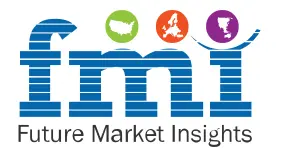AI in Healthcare: Exploring the Opportunities with Caution
The whitepaper titled “AI in Healthcare: Exploring the Opportunities with Caution” offers a comprehensive and structured examination of how artificial intelligence is transforming the global healthcare ecosystem. Rather than simply celebrating AI’s potential, the report strikes a critical balance by highlighting both the opportunities and systemic challenges that shape its adoption. Spanning twelve clearly defined sections, the document serves as a roadmap for stakeholders—including healthcare providers, regulators, technologists, investors, and policy-makers—who are navigating the evolving intersection of AI and medicine.
The paper opens with a definition-driven introduction that contextualizes AI’s role in healthcare: not as a replacement for human expertise, but as an assistive technology designed to enhance decision-making, automate workflows, and handle complex datasets generated by electronic health records, wearables, and genomics. It clarifies that clinical judgement, data quality, and trust remain indispensable—even in a tech-driven system.
Subsequent sections explore the rapid rise of AI-powered devices and solutions, mapping their exponential growth from just six FDA-authorized tools in 2015 to over 900 by mid-2024. This growth is underpinned by a surge in private equity investment totaling $60 billion between 2019 and early 2025. The report also dissects the regulatory landscape, revealing that most AI devices bypass rigorous review via the FDA’s 510(k) pathway, and highlighting the limited use of randomized clinical trials in approvals.
Adoption metrics are presented with clarity and nuance. The paper outlines how only 22% of US hospitals had adopted at least one AI application by 2024, with a disproportionate uptake in large, short-term facilities. Meanwhile, physician adoption has accelerated sharply, with use cases ranging from care documentation and translation to chatbot-based recommendations. However, skepticism persists among clinicians, shaped by concerns around integration, privacy, and reliability.
The report quantifies the potential for economic impact, estimating that full-scale adoption could cut US healthcare costs by $200–360 billion annually, primarily through reduced administrative overheads and better resource optimization. But it cautions that savings are conditional on proper strategy, agile implementation models, and robust data management.
What sets this whitepaper apart is its deep dive into the ethical dimensions of AI. Separate sections are devoted to bias and fairness, transparency and trust, and informed consent and confidentiality. It evaluates how flawed or unrepresentative data can worsen health inequities, how the black-box nature of algorithms challenges interpretability, and how varying demographics influence patient trust.
Finally, the whitepaper presents a forward-looking view on governance frameworks (including WHO guidelines), emerging foundation models like Med-Gemini, the use of synthetic data for ethical model training, and the global policy momentum driving AI integration in healthcare systems worldwide.
In sum, this whitepaper serves as a strategic, data-backed, and ethically grounded guide for anyone serious about implementing AI in healthcare, without falling for the hype.
